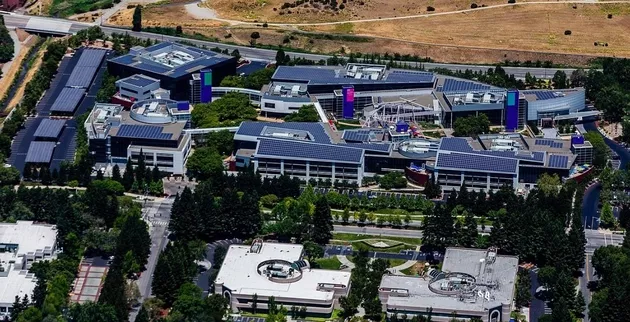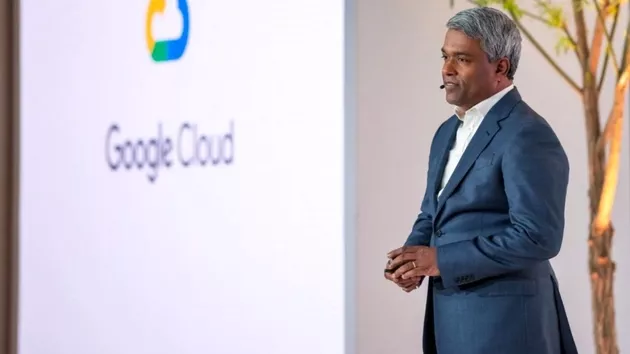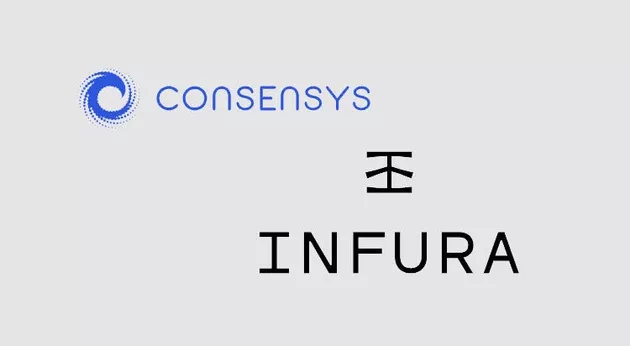Google's new plan stirs the nerves of Web3 players. In the $3 billion headquarters building, Google officially established its first Web3 department‘ This means that Web3 has been listed as a priority by Google, and Google thinks it's time to study it seriously. " Professor Lori Kehoe said that in the past few years, he has been studying future technological trends at Trinity University in Dublin.

Google's action once again reminds people to think about the essence of Web3.
According to CNBC, the Web3 team established by Google will provide back-end services for blockchain developers and focus on the infrastructure of the Web3 world‘ Although the world is still in the early stage of exploring Web3, this market has shown great potential. Many customers have asked us to increase our support for Web3 and cryptocurrency related technologies. " Amit zavery, vice president of Google cloud, said.
Traditional giants can no longer ignore the rise of Web3. According to a data from the Research Institute, the venture capital of blockchain and encryption companies reached US $32.8 billion in 2021. In 2021, the world's 100 largest listed companies invested US $1.91 billion in blockchain, compared with us $500 million in 2020.

Panorama of Google's Silicon Valley headquarters | Wikipedia
Google cloud defines the Web3 boom in its official blog: 'blockchains and digital assets are changing the way the world stores and delivers information and value. Today's Web3 boom is like the rise of open source and the Internet 10-15 years ago. Just as open source development is an integral part of the early Internet, blockchain is bringing innovation impetus to users and enterprises. "
Google has shown its enthusiasm and determination for Web3. Interestingly, in an interview with Time magazine in early 2022, vitalik, a representative figure in the Web3 world and founder of Ethereum, said that it hoped that Ethereum could balance authority, become a starting platform for various social experiments, and overturn the constraints of Silicon Valley on our digital life.
One of the "decentralization" spirit advocated by Web3 believers is to take control of the Internet from large companies and return power to every ordinary user. At present, if this Silicon Valley giant, which relies on "centralization" to succeed, wants to enter a new field with "decentralization" as the main spirit, Google needs to find a new story and path to resolve the doubt.
Google's Web3 Roadmap
Google's Web3 team is set up under the Google cloud.
On May 7, in an email sent to employees, Amit zavery, vice president of Google cloud, said that Google did not want to directly become part of the encryption wave, but participated in this process by providing back-end services for Web3 developers. Just as they provide cloud services for many customers, they will not do specific business by themselves, but intend to become an infrastructure provider for blockchain enterprises, reducing the threshold for developers to design their blockchain based decentralized system.
Amit zavery revealed that the newly established Web3 team is mainly to combine the internal employees who have participated in the Web3 project, and then recruit some blockchain development engineers and other relevant talents from the outside.
There were not many teams engaged in Web3 related businesses within Google.
In January this year, Google cloud disclosed that they were studying how to use cryptocurrency to pay. At that time, Yolande piazza, vice president of Google cloud financial business, said that the company had established a Google cloud digital asset team to help customers create new products on blockchain based platforms‘ Let Google cloud become a bridge between traditional enterprises and blockchain technology. "
Also in January, according to Bloomberg, shivakumar Venkataraman, vice president of engineering of Google, is running a department focusing on blockchain and next-generation distributed computing, which will carry out various VR and AR related projects. Venkataraman is a senior expert in Google's search advertising team and has previously published research on distributed computing.
These teams may be merged into the Web3 department, and the new team members are still being finalized.
It is reported that the Google Web3 team will be led by James tromans. He joined Google from Citigroup in 2019. When James worked at Citigroup, he was the data science director of foreign exchange trading business, focusing on financial technology. He was once called one of Citigroup's most senior foreign exchange trading technical experts.

Thomas Kurian, head of Google cloud | acceleration economy
James tromans will report to Amit zavery, vice president of Google cloud. Amit zavery previously served as general manager of Oracle cloud platform and joined Google cloud in 2019. Thomas Kurian, his boss and current head of Google cloud, is also from Oracle, who was previously the president of Oracle.
'in the future, Google will design a system to make it easier for people to explore blockchain data and simplify and run blockchain nodes. This tool can also run on other clouds. " Amit zavery.
Zheng Chen, a blockchain engineer, explained that "blockchain node" generally refers to the "computer" in the blockchain network. It can be any device connected to the blockchain, such as mining machine, PC or even mobile phone.
There is no centralized 'server' concept like Google cloud and Alibaba cloud in the blockchain network. Various applications (dapps) are mainly calculated through large-scale distributed blockchain nodes, not cloud servers.
The nodes are decentralized, so some node operators came into being‘ The project side can also deploy and operate some nodes by itself, but it will be very troublesome and unnecessary. Just as few people want to create a website, they have to set up a computer room in their own home. "
For example, at present, the well-known Ethereum node service provider infra, third-party applications can connect to Ethereum only through an API interface provided by infra, so that users can access their services without having to operate and maintain the nodes themselves.
"At present, there is no competitive relationship between the two. Infra acts as a node agent and Google cloud provides web2 Server for 0. Google should also plan to be a cloud agent in the future Zheng Chen judged.
Professor Lori Kehoe predicts that payment function may be an early focus of Google Web3 department‘ For Google, the prospect of blockchain technology is to transfer tokens from Google customer a to Google customer B in a cheaper, better and faster way without going through multiple intermediaries and paying intermediary fees. " He explained.
Christophe uzureau, vice president of Gartner research, observed that Google's layout of the cash app: 'Google has established partnerships with coinbase and bitpay to support the issuance of cryptocurrencies for Google pay.'
It can be understood that both building a 'blockchain wallet' and developing blockchain node services (equivalent to 'cloud services' in the era of Web2.0) are infrastructure in the field of Web3, or even' entry-level 'services. Google's Web3 idea is very clear. No matter how this new field develops in the future, it still wants to become an infrastructure in the new world.
Why now
Some people in the industry have provided another interpretation of Google's layout of Web3: on the one hand, it is to layout the infrastructure of Web3; On the other hand, it is actually for the development of its own cloud services to compete with cloud service providers such as Amazon's AWS and Microsoft's azure.
According to the financial report of Google parent company alphabet in the first quarter of 2022, Google's cloud revenue increased by 44% year-on-year to US $5.82 billion, but the total amount is still inferior to AWS (US $18.44 billion) and Microsoft azure (US $11.45 billion). AWS has accounted for about one third of the global cloud service market.
Google cloud is becoming more and more important for Google. Ruth Porat, chief financial officer of alphabet, said that the growth rate of Google cloud services has exceeded its core advertising department, and the cloud department has the fastest growth in the number of employees.
Some industry insiders believe that Google's establishment of Web3 team may help promote the growth of its cloud services and narrow the gap with AWS and Microsoft azure.
However, Google's challenge is not small. In terms of blockchain services, Microsoft has been supporting blockchain developers since 2015, and Amazon launched its own blockchain support services in 2018. In 2021, Marta Whiteaker, director of AWS marketplace, once revealed: "at present, 25% of the global workload of Ethereum is running on AWS."
Compared with other giants, Google, which holds a conservative attitude on Web3, why set up the Web3 team at this time? Christophe uzureau, vice president of research at Gartner, said, "Google may be worried that the development of Web3 will impact its cloud services and advertising business, and gradually reduce Google's influence on the digital ecosystem."
From this perspective, Google's layout of Web3 is still a web2 0 field.
What kind of Web3 world are we leading to
"As a potential big player in the blockchain field, Google's arrival will not be welcomed by the whole community." Lori Kehoe said in an interview with tech monitor.
'big players' are always controversial in the blockchain field. In 2018, a large number of Ethereum, bitcoin and other blockchain nodes were deployed on AWS. Because of the downtime of AWS, coinbase and binance The business of cryptocurrency exchanges such as us was also forced to be interrupted. This is a cruel reality for Web3 practitioners. It is obvious that the "decentralization" part of "decentralized finance" still has some way to go in some cases, and AWS (or Amazon) has shown a dominant position in both web2 and Web3 era.
Similarly, Google's entry has also aroused people's vigilance‘ Decentralization is the key principle of Web3 economy, and centralized blockchain infrastructure may destroy it. " Lori Kehoe said.
For example, on June 8, 2013, feathercoin (FTC) was attacked by '51%'. This means that if a single entity can control more than half of the total processing capacity of the FTC network, it can enable them to cancel confirmed transactions and even prevent new transactions. While FTC was attacked, the website was also attacked by DDoS. This makes it difficult for users to withdraw funds from it. Since then, FTC has fallen into obscurity. Its price plummeted, no longer listed on any mainstream exchange, and suffered a blow to the top.

Ethereum node service provider infra has been acquired by blockchain technology company consensys, whose founder is Ethereum co-founder Joseph Lubin | cryptoninjas
Many people attribute this historical 'centralization' to over reliance on cloud service providers. In order to avoid centralization, new infrastructure providers are gaining attention, such as infra, which runs nodes scattered everywhere and even in users' homes. However, infra is growing and becoming the largest node service provider of Ethereum, accounting for more than half of the market share. The frequent infra downtime has once again proved to people that the blockchain in the name of "decentralization" still depends on centralized infrastructure if it wants to be popularized on a large scale.
Moxie marlinspike, founder of signal, a well-known encrypted communication application, pointed out this paradox. He wrote on his blog, "even many geeks don't want to run their own servers. Even a large software enterprise doesn't want to run its own server. That's why those cloud computing vendors will succeed. It's the same in the Web3 era. "
In his view, whether it is "decentralized" may not be important.
'one thing I've always found strange about the cryptocurrency world is the lack of attention to the client / server interface. Blockchain is designed as a peer-to-peer network, but not to make it possible for your mobile device or browser to become one of these nodes. " He said, 'imagine that every time you use chrome to surf the Internet, your request is first sent to Google's server, and then routed to the destination (blockchain network) and returned to Google. This is the situation of Ethereum today. "
Lori Kehoe also believes that, in fact, users may not care much about whether the products and services they use are completely decentralized‘ If Google develops a service that is easier to use and fills the market gap, people will go there even if the service is not decentralized. " 'that's the power of Google, 'he said
It's like web2 0 in web1 On the basis of Web3.0, it has developed a new digital scene, like Web3.0 0 will continue to broaden the boundaries of the digital world on the basis of the first two. The three do not replace each other.
A Web3 entrepreneur told geek Park, 'Web3 is a free world and everyone has the right to participate. Therefore, I don't think Google has any advantages. Facebook's failure in the digital currency Libra project is an example. "
"There will always be a struggle between centralization and decentralization. This is a struggle of culture and system, not limited to the field of technology, but the development of human society." He said.
Author Wei Peng
Editor | Jingyu